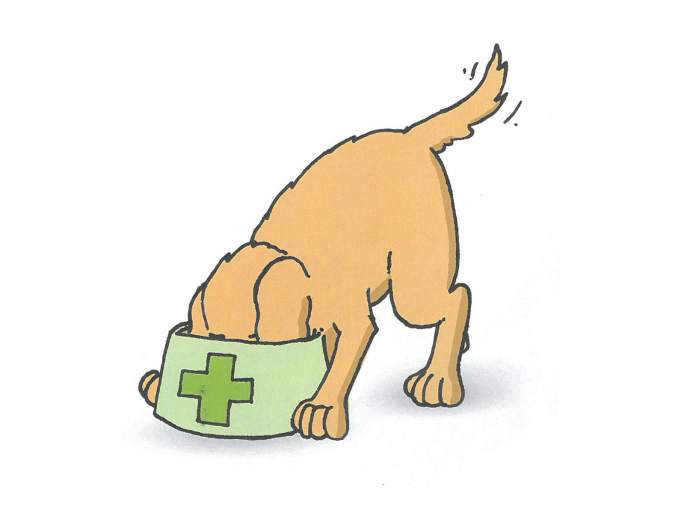How recreational-marijuana legalization is screwing medical-marijuana access.
Washington continues to take one step forward and seven steps back in our legalization experiment. With new laws rapidly eroding the voter-approved Medical Use of Marijuana Act of 1998, the cannabis community is deeply divided between the “haves” (recreational retailers, growers, and processors) and the “have-nots” (medical-marijuana patients and dispensaries). What does this grave new world look like?
No-Man’s Land
Dispensaries and collective gardens are being shut down across Washington, leaving the state’s estimated 175,000 medical patients to wonder how in the hell they’re going to get their medicine. They aren’t likely to find it at recreational stores, which have little incentive to sell medicinal items such as low-THC edibles, transdermal patches, topicals, or cannabis suppositories.
King County and the Seattle City Council have voted to begin shutting down “unlicensed” dispensaries, and are sending Cease and Desist orders to collectives. Dispensaries also have been notified that if they continue to operate as unlicensed retail outlets, they’ll face civil and criminal ramifications. Problem is, there are nomedical-dispensary licenses under 502, and currently no guidelines for them to apply. The official application period for 502 stores ended in December 2013, and no new applications for medicinal stores will be taken until next July. And until the (Liquor and) Cannabis Board approves these new applications, patients are stuck in the middle of a cannabis clusterfuck. In addition, dozens of counties and towns are banning legal marijuana stores in their jurisdictions, not only ignoring the will of the voters but denying access for those using medical cannabis.
Patient “Protection”
As noted previously in this column (“Marijuana Is Medicine,” April 29), Senate Bill 5052, signed into law by Governor Inslee in April, is a draconian piece of crap that will overhaul (aka eliminate) a medical system that was up and running long before recreational marijuana was even a seedling. Last week, part of the bill—which in an Orwellian twist has been deemed the Cannabis Patient Protection Act—went into effect with a slew of regressive rules, tailor-made to force longtime medical users into either taxable retail stores or back underground. The new law drastically cuts the number of plants a patient can have. No more than 15 plants can now be grown in a single housing unit, regardless of the number of patients or designated providers who reside there. This directly impacts thousands of patients who are unable to grow (or afford) marijuana themselves and belong to collective gardens, which previously allowed up to 45 plants for 10 individuals. Many of these collectives also prepare edibles for patients who cannot smoke, as well as cannabis oils, balms, and tinctures for a wide variety of maladies.
No House Calls
Practitioners can no longer go to a patient’s home or set up a location outside of their permanent office to evaluate, assess, or examine for a qualifying condition; this eliminates satellite clinics, which doctors often set up in rural areas where few health professionals were available to write authorizations for medial marijuana. (We’d hate for Grandma to get too comfortable and be evaluated for her Parkinson’s or Crohn’s disease anywhere near her home in Black Diamond.)
Feeding the Paranoia
Health-care practitioners can no longer run an office with the sole purpose of authorizing medical recommendations. (I mean, why have anyone specialize in the ailments that may be alleviated by cannabis?) If a health-care practitioner writes more than 30 authorizations for medical marijuana in a single month, he or she must now report the number to the Washington Department of Health.
You don’t have to be paranoid to be nervous about doctors handing over charts and records to various state boards and commissions which point out that their patients are committing felonies at the federal level. And the paranoia won’t stop there. This particularly nerve-wracking requirement will be eliminated a year from now . . . when the new “voluntary” registry takes effect. You don’t sign up—you get no tax break for medical weed.
The Budtender Is Not In
A final absurd nail: Medical patients, who will now need to get their cannabis from recreational outlets, will not be able to discuss medical solutions to their various ailments and illnesses with store budtenders. It’s strictly against Liquor and Cannabis rules.
A Positive for Veterans
There was one positive outcome from Washington’s legislative changes: Post-traumatic stress disorder is now one of the conditions that a medical provider can cite to authorize the use of marijuana.
Even this seeming no-brainer wasn’t a shoo-in: Colorado’s Board of Health recently rejected PTSD as a qualifying condition, saying they wanted further research, despite their own Colorado Scientific Advisory Council’s recommendation that it be added.
Veterans have testified at the state and federal level in their efforts to allow cannabis to treat a variety of conditions ex-military personnel face, including depression, anxiety, insomnia, traumatic brain injuries, and pain relief. According to the Department of Veteran Affairs, an average of 22 veterans kill themselves every day. While the feds do not allow military personnel to use cannabis during their service or as part of post-service treatment plans through the Veterans Administration, if there are any ways to alleviate their suffering, we should obviously explore them. #SupportOurTroops
More regulations that will eliminate safe medical-marijuana access points take effect next July, including rules on licensing and product testing, collective garden requirements, and shutting down all current medical dispensaries and potentially licensing them as retail stores. Lawsuits and Initiatives to overturn both Initiative 502 and portions of 5052 and stop the closure of medical dispensaries have been filed by the Association of Safe Access Points (saveaccesswa.com andasapwa.org), Real Legalization (reallegalization.org), and others. The Legalization Experiment clumsily continues.





